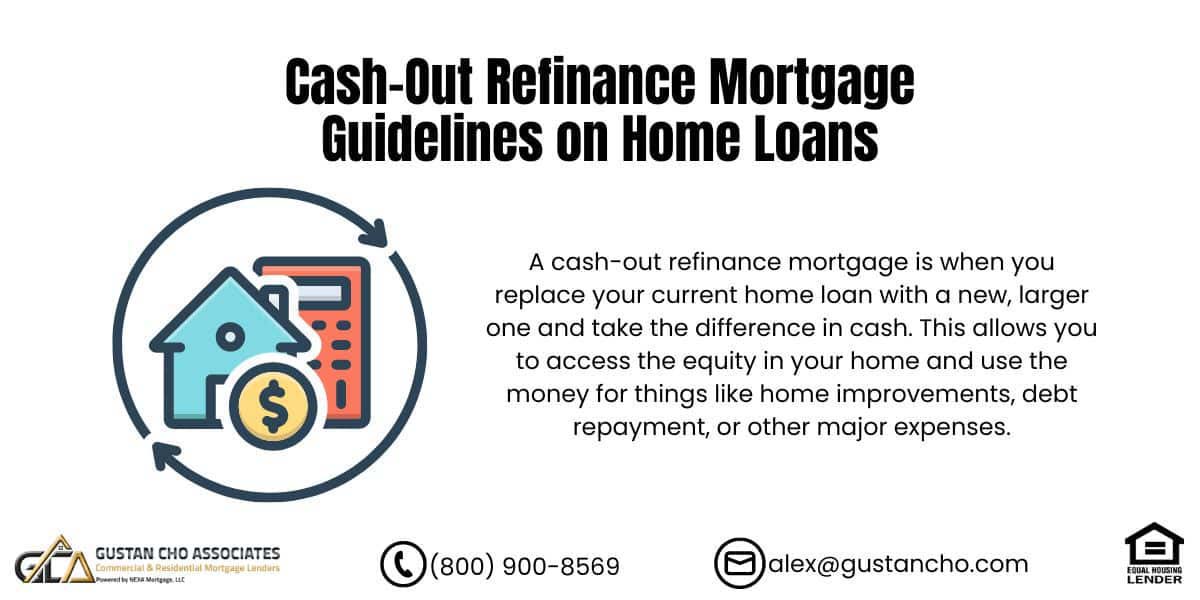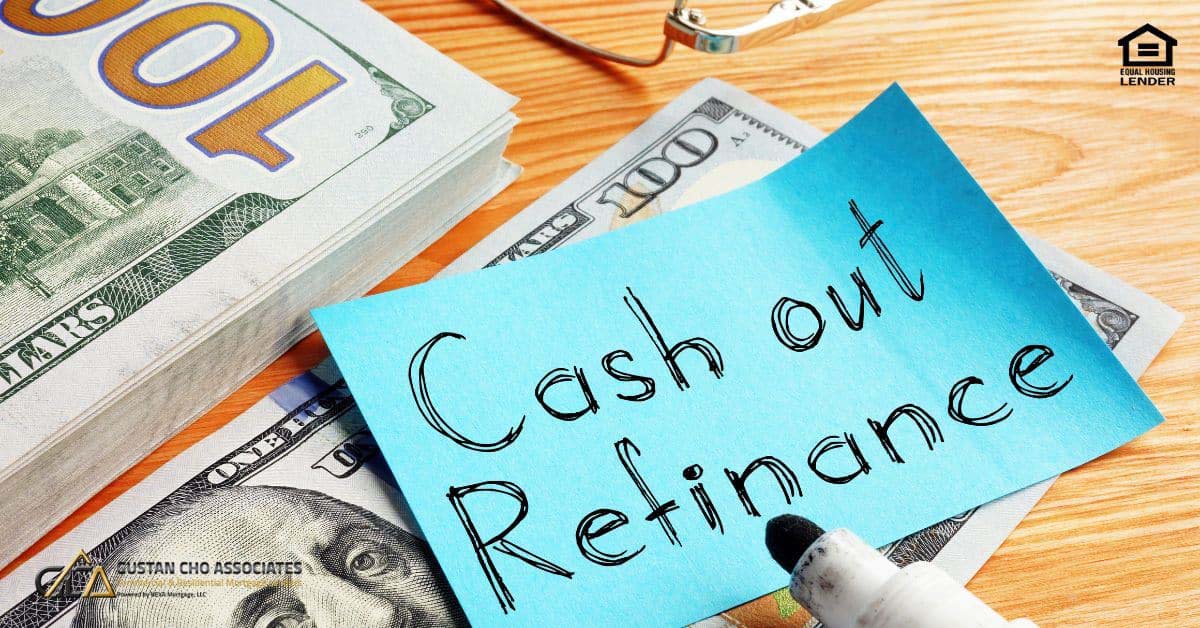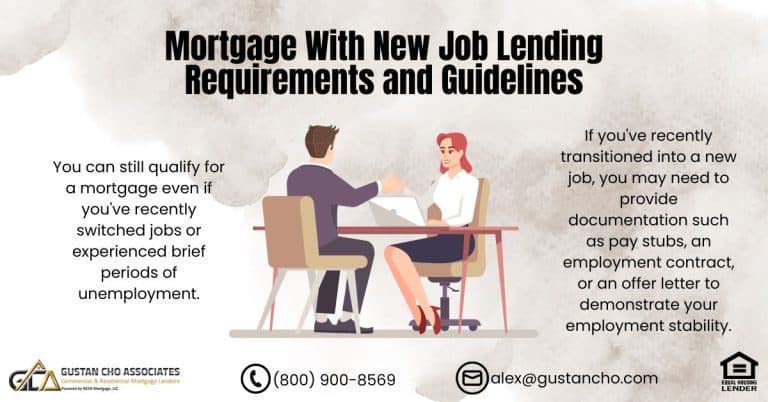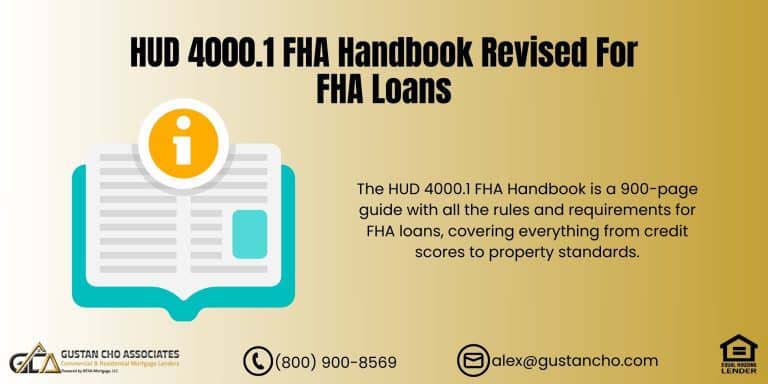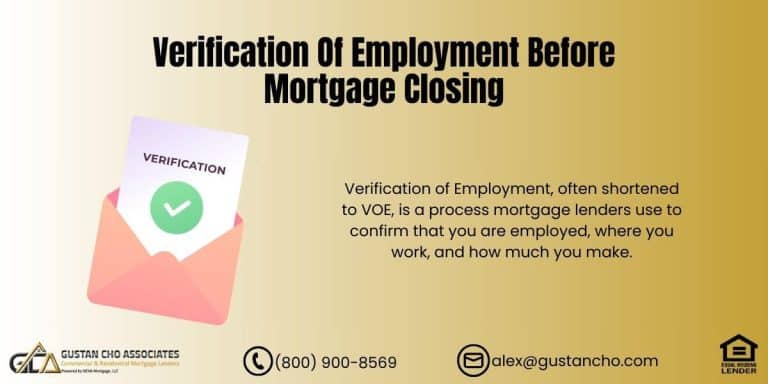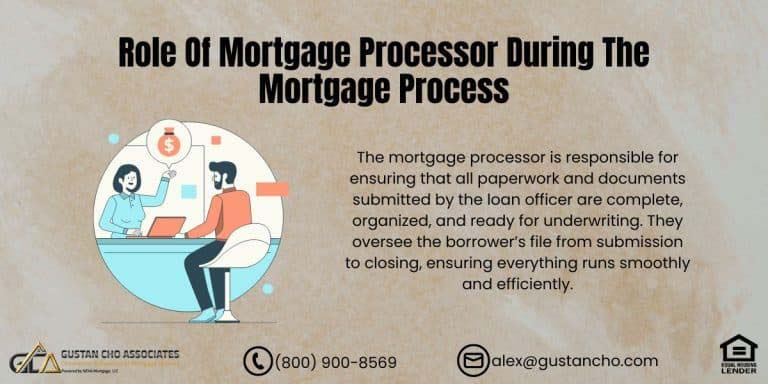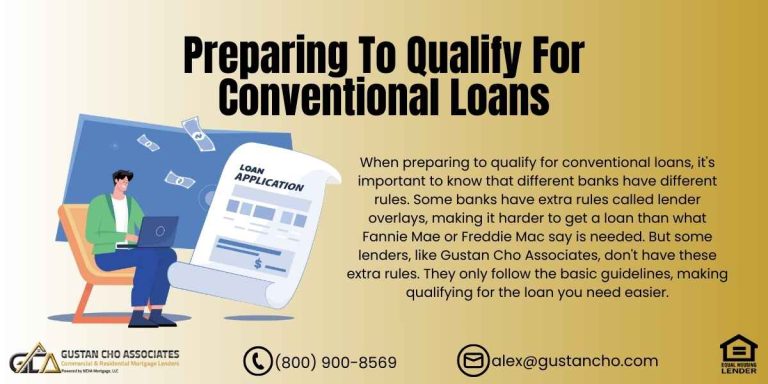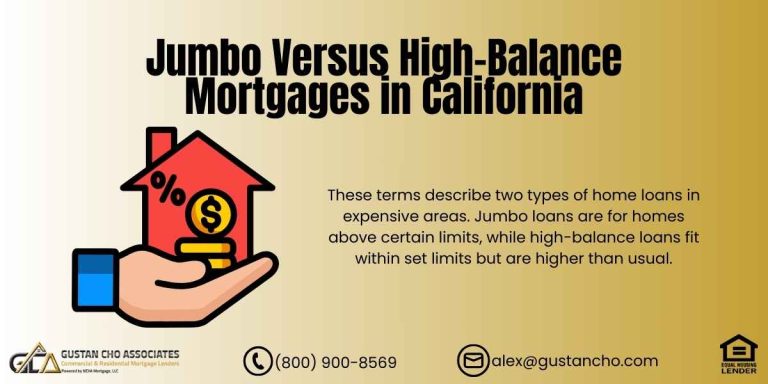A cash-out refinance mortgage allows homeowners to use the value they’ve built up in their house. It means getting a new mortgage bigger than the one you already have, and you get the extra money in cash. This guide will show you all you need to understand about cash-out refinance mortgages in 2024. You’ll learn how they work, the good and bad points, who can get one, how you apply, and more.
How Cash-Out Refinance Mortgage Works
When you go for a cash-out refinance mortgage, it’s like getting a new home loan bigger than your current one. You swap out your old mortgage for a new one, but this new one is for more money. The extra cash, the difference between your old loan and the new bigger loan, is handed to you to spend on things like fixing up your house, paying off debts, or other big bills.
Think of it like this: say you still owe $150,000 on your home, but it’s actually worth $300,000. You could get a new loan for $200,000. You use this to clear the $150,000 you owe, and then you have $50,000 in your pocket to use (you have to take out a bit for the costs of doing this deal, though).
Looking to Access Your Home’s Equity? Let’s Review Cash-Out Refinance Guidelines!
Contact us today to learn about the guidelines and see how you can qualify for a cash-out refinance.
Benefits of a Cash-Out Refinance Mortgage
When you choose a cash-out refinance mortgage, here’s what you get:
- Easy Cash Access: The major plus is that a cash-out refinance mortgage gives you a good amount of cash to use however you need.
- Better Interest Rates: If the new rates are better than your old mortgage’s, you will save on interest with a cash-out refinance mortgage.
- Paying Off Debt: You can clear out high-interest debts like credit card bills, which helps you save on interest costs and makes managing your money simpler.
- Upgrading Your Home: Investing money in improving your home not only makes it nicer to live in but could also increase its value.
- Tax Perks: Mortgage interest might give you a tax break, which is not often the case with other types of loans.
Drawbacks of a Cash-Out Refinance Mortgage
- Upfront Fees: Like the first time you got your mortgage, a cash-out refinance mortgage has upfront costs, which could be between 2% and 5% of the total loan.
- Risk of Foreclosure: With a bigger loan amount, your monthly payments go up. If your money situation gets tight, this can put you at risk of losing your home.
- Equity Reduction: When you take cash out, you own a smaller part of your home. This could be a problem if the value of homes goes down.
- Longer Loan Term: Getting a cash-out refinance mortgage might extend the time it takes to fully pay off your house.
Eligibility Criteria for Cash-Out Refinance Mortgage
When you’re considering getting a cash-out refinance mortgage, you need to keep a few key things in mind. These are pretty basic but super important to understand to get the best deal possible.
Credit Score Requirements
First, one of the big things lenders look at is your credit score. Think of your credit score like a report card for how you handle your money. For a cash-out refinance mortgage, most of the time, you need a credit score that’s at least 620. If your score is higher, that’s even better because it might help you get a lower interest rate.
Home Equity
Now, let’s talk about how much of your home you own, known as home equity. To get a cash-out refinance mortgage, there’s a rule of thumb that you need enough equity to borrow up to 80% of your home’s current value. However, this can change depending on who’s giving you the loan and the specifics of their program.
Debt-to-Income Ratio
Lastly, your debt-to-income ratio, or DTI, is super crucial. It’s a way for lenders to see if you can handle this new loan without stretching yourself too thin. Ideally, your DTI should be below 43%. Some lenders might be okay with a higher DTI, especially if you’ve got other things going for you that make you a good borrower.
So, these are the essentials you need to know about when considering a cash-out refinance mortgage. Keep them in mind, and you’ll be on your way to making a smart decision for your financial future.
Process Details for Cash-Out Refinance Mortgage
Application Process
When you’re looking into getting a cash-out refinance mortgage, here are the steps:
- Check Your Finances: Look at how much your home is worth compared to what you owe. Think about why you need the cash.
- Look Around: Don’t settle on the first lender you find. Compare different cash-out refinance mortgage deals to see who offers the best rates and conditions.
- Apply: Fill out the lender’s form and give them the necessary papers, like how much you make, your tax records, and your credit history.
- Home Check: The lender will have someone appraise your home to determine its market value.
- Review Time: The lender will review your application and everything else to decide if they agree.
- Final Steps: If all goes well, you’ll sign the final papers, take care of any last-minute costs, and then get the extra cash from your cash-out refinance mortgage.
Required Documentation
When you’re looking to get a cash-out refinance mortgage, here’s what you’ll need to have with you:
- Proof of Income: Your pay slips, tax papers if you work for yourself, or W-2 forms.
- Credit Report: The bank will examine your credit history to determine whether you’re good with money.
- House Appraisal: A professional will check how much your house is worth.
- Other Financial Documents: This includes your bank records, any debts you have, and other important money details.
Financial Considerations
Money Matters
Usually, when you get a cash-out refinance mortgage, the interest you have to pay is a bit higher than if you were refinancing your home loan to get a better interest rate without pulling out extra cash. Also, there are several fees you might have to pay, such as for the loan setup, the home’s value check, and other closing expenses. These fees take up about 2% to 5% of the total loan amount, so it’s something to remember.
Shopping Around
It’s important to look around and check offers from different places when considering a cash-out refinance mortgage. Pay attention to the APR, or annual percentage rate, because it tells you the total cost of the loan each year, including both the interest and fees. This will give you a more complete idea of what you’re going to pay.
Using Funds from a Cash-Out Refinance Mortgage
When people take money out of their home’s equity through a cash-out refinance mortgage, they often have big plans for it. Here’s what they usually do:
Home Improvements
When folks get a cash-out refinance mortgage, they often use the money to make their house nicer. They could add a room, fix up the kitchen, or paint. This not only makes their home a better place to live but can also make the house worth more money if they decide to sell it later.
Debt Consolidation
Some folks use the cash from a cash-out refinance mortgage to clear out expensive debts. Think about those high-interest credit cards or big personal loans. Using the cash this way can help save money on interest and makes handling bills every month easier.
Spending on Big Needs or Wants
Then, there’s spending the cash from a cash-out refinance mortgage on other big stuff. It could be for school or college fees, medical expenses, or buying another property.
Homeowners can tap into their home’s value by choosing a cash-out refinance mortgage to cover these important expenses.
Need Cash from Your Home? Let’s Guide You Through Cash-Out Refinance Mortgage Guidelines!
Reach out now to explore the guidelines, eligibility requirements, and get started on your application today!
Understanding Your Options: Cash-Out Refinance vs. Other Financial Options
Home Equity Loans
This is like getting a second loan on your home. It’s different from a cash-out refinance mortgage because it adds another bill to pay, not replace your main mortgage. The interest you pay might be a bit high, but it’s handy if you don’t need a lot of cash.
Home Equity Line of Credit (HELOC)
Think of this as a credit card that uses your home’s value. It’s flexible, but be aware that the interest can change and might be more than what you’d pay with a cash-out refinance mortgage.
Personal Loans
Getting a personal loan means you don’t have to use your house as a guarantee. However, the interest is usually higher, and you have to pay it back faster than you would with a cash-out refinance mortgage.
Tax Implications
Interest Deduction
It’s pretty cool when you consider getting a cash-out refinance mortgage because the interest you pay on the mortgage might let you save some money on your taxes. This means that for the part of your mortgage that you pay interest on, you might not have to pay as much in taxes, making choosing a cash-out refinance mortgage a smart move compared to other ways you might borrow money.
But the tax folks (IRS) have specific rules on what you can and can’t deduct when it comes to interest, so it’s a good move to chat with a tax expert.
Potential Taxable Events
Also, what you plan to do with the money from your cash-out refinance mortgage could lead to different tax situations. Suppose you’re considering using the cash for something other than improving your home or fixing it up. In that case, getting the scoop on any tax consequences is smart. This way, you can make a more informed decision on using the money from your cash-out refinance.
Special Programs and Waiting Periods
FHA Loan Refinancing Options
When you’ve got an FHA loan and are looking into refinancing, you’ll need to wait six months before you can go for a rate-and-term refinancing deal. However, if you’re considering refinancing to take some cash out of your home’s equity, you’ll need to hang tight for 12 months. This is known as a cash-out refinance mortgage. For this type of cash-out refinance mortgage, the most you can borrow against your home is up to 85% of its value.
Refinancing with a Conventional Loan
The rules are straightforward for those with conventional loans looking to refinance. Whether you’re after a rate-and-term refinance or want to cash out some of your home equity, you’ll need to wait six months. If cashing out is your plan, keep in mind that the most you can borrow is 80% of your home value. And sometimes, you need not one but two appraisals to get everything squared away.
Fannie Mae’s Delayed Financing Offer
Fannie Mae has a special deal for homeowners who want to cash out right after buying their property. It’s called the Delayed Financing program. The cool part is that there’s no waiting period. You can do a cash-out refinance as soon as you wish. The most you can borrow is 70% of your home’s value, and the total amount you get can’t be more than what you paid for the house.
Ready to Refinance and Access Cash? Understand the Guidelines for Cash-Out Refinances!
Contact us today to discuss the mortgage guidelines and find out how we can help you secure the funds you need.
Case Study
Imagine you’ve just bought a house and paid $200,000 in cash. After a while, you decide to tap into your home’s equity because you need some cash for renovations or may have other expenses or investment opportunities you want to explore. One way to do this is through what’s known as a “cash-out refinance mortgage.”
This particularly useful financial move allows you to refinance your home for more than you owe on it (in this case, you don’t owe anything since you paid cash).
But there’s a catch: under the Delayed Financing program, you can’t just refinance any amount. The program has limits. For your house, which you bought for $200,000 cash, the maximum loan you can get with a cash-out refinance mortgage is capped at $140,000.
This is a handy option for homeowners who quickly want to access their home’s equity without waiting for traditional refinancing rules that usually require you to wait for a certain period after buying your home. By opting for a cash-out refinance mortgage under the Delayed Financing program, you’re getting a portion of your cash investment back, which you can use however you need, while retaining ownership of your home.
Other Cash-Out Refinance Mortgage Loan Programs
USDA does not allow cash-out refinance mortgage loans. VA does allow 100% cash-out refinance mortgage. However, VA Loans are only for veteran borrowers with a valid Certificate Of Eligibility.
Gustan Cho Associates Mortgage Group has various loan programs for cash-out refinancing. NON-QM Loans and Bank Statement Loans for self-employed borrowers are becoming increasingly popular. NON-QM Jumbo Mortgages are available for self-employed borrowers with no tax returns required and credit scores down to 620.
A cash-out refinance mortgage can help you if you’re smart about it. Think of it as a way to get some extra cash, lock in lower payment rates, or pay off what you owe all in one go. But you’ve got to be careful. There are rules on who can get one, things to consider like taxes, and you want to know what’s up before jumping in. Definitely chat with a money expert or tax pro to see if a cash-out refinance mortgage fits your needs.
FAQs: Cash-Out Refinance Mortgage Guidelines on Home Loans
- 1. What is a cash-out refinance mortgage? A cash-out refinance mortgage is when you replace your current home loan with a new, larger one and take the difference in cash. This allows you to access the equity in your home and use the money for things like home improvements, debt repayment, or other major expenses.
- 2. How does a cash-out refinance mortgage work? With a cash-out refinance mortgage, you get a new mortgage bigger than you currently owe. For example, if you owe $150,000 on your home worth $300,000, you might refinance for $200,000. You pay off the $150,000 balance and get $50,000 in cash, minus closing costs.
- 3. What are the benefits of a cash-out refinance mortgage? The main benefits include access to cash for big expenses, potentially lower interest rates, consolidating high-interest debt, making home improvements, and possible tax benefits on the mortgage interest.
- 4. What are the drawbacks of a cash-out refinance mortgage? Drawbacks include upfront closing costs, higher monthly payments, the risk of foreclosure if you can’t make payments, reduced home equity, and possibly extending the term of your loan.
- 5. Who is eligible for a cash-out refinance mortgage? Eligibility generally requires a minimum credit score of 620, sufficient home equity (usually at least 20% of your home’s value), and a manageable debt-to-income ratio, typically below 43%.
- 6. What documentation is needed to apply for a cash-out refinance mortgage? You need to show proof of income, such as pay stubs or tax returns. You’ll also need to provide a credit report, a home appraisal, and other financial documents, such as bank statements and debt information.
- 7. How can I use the money from a cash-out refinance mortgage? You can use the money to fix your home, pay off high-interest debt, cover education costs and medical bills, or even invest in another property.
- 8. How do interest rates and fees compare for cash-out refinance mortgages? Interest rates for cash-out refinance mortgages are generally higher than standard rate-and-term refinances. Fees can include origination fees, appraisal fees, and closing costs, typically 2% to 5% of the loan amount.
- 9. What are the tax implications of a cash-out refinance mortgage? You can deduct your mortgage interest on your taxes, which could save you money. However, using the funds for something other than home improvements may have different tax implications. It’s a good idea to talk to a tax professional for advice.
- 10. Are there any special programs or waiting periods for a cash-out refinance mortgage? Yes, FHA loans require a 12-month waiting period for cash-out refinances with a maximum of 85% LTV. Conventional loans have a 6-month waiting period with a maximum of 80% LTV. Fannie Mae’s Delayed Financing program allows immediate cash-out refinances with a maximum of 70% LTV.
Related> What is delayed financing?
Need more info or ready to get started with your cash-out refinance mortgage? Hit up Gustan Cho Associates Mortgage Group. Call us at 800-900-8569 or shoot us a text for a quick reply. Prefer email? No problem. Send one our way to gcho@gustancho.com.
This blog about Cash-Out Refinance Mortgage Guidelines on Home Loans was updated on July 23rd, 2024.
Looking for a Cash-Out Refinance Mortgage? Let’s Discuss the Guidelines and Your Options!
Contact us today to explore your options and take the next step toward accessing your home’s equity.


